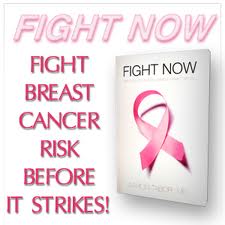 Having just concluded Breast Cancer Awareness Month, we thought it was only fitting that we interviewed a handful of our patients who have come to us recently for reconstructive surgery following breast cancer operations.
Having just concluded Breast Cancer Awareness Month, we thought it was only fitting that we interviewed a handful of our patients who have come to us recently for reconstructive surgery following breast cancer operations.
Their experiences are powerful examples of the importance of getting checked regularly for breast cancer. They demonstrate how your body post-cancer can be just as beautiful as before.
Here is the second interview with “Betty” (not her real name):
“Breast cancer runs in my family on my father’s side. Two cousins had previously undergone breast surgery. Then in June 2011, my 37-year-old sister (and mother of a 1-year-old baby) was diagnosed with an aggressive form of breast cancer. Because she tested positive for the BRCA-1 gene, I decided to get tested too. Since my wedding was two weeks away, I waited until a week after the ceremony and then paid $1000 out of pocket for the test, since it wasn’t covered by insurance.
One month later, on August 20, 2011, I got the results: I too had tested positive for the BRCA-1 gene. This meant it wasn’t a question of if I’d get breast or ovarian cancer at some point; instead, it was a matter of when it would happen. I realized if I did nothing at all, it was simply a matter of time before I too got a bad diagnosis and was forced to undergo surgery, radiation, and/or chemotherapy.
After that, everything went into motion quickly. I walked across the hall and met with Dr. Tito, the surgeon who eventually performed my mastectomy. She referred me to an oncologist and to a plastic surgeon (Dr. Delia) because she wanted me to learn about all of my options.
I’m the type that wants to find out as much as I can about a subject from day 1. I put any information I could find about the BRCA-1 gene and breast cancer into a binder. My husband joked that I reminded him of a teenage boy going through puberty because of how many nipples and boobs I was looking at on the internet.
I remember my first visit to Dr. Delia’s office – I was scared to death. I had never wanted any boob work done, except perhaps a breast lift after nursing three kids. But suddenly here I was, dressed in nothing more than a gown, my husband sitting next to me, and a doctor I’d just met was staring at my boobs. I remember thinking, “What am I doing here?!” But Dr. Delia understood where I was coming from and let me be who I needed to be as I worked my way through the fears and uncertainty. He was very patient and explained things to me three times if necessary, because he knew I was nervous.
By my second visit with Dr. Delia, I felt calmer and more informed. After being educated about all my options, I decided to go ahead with a full bilateral mastectomy. My thought process was, if it was inevitable that I’d get cancer at some point, why not go through the procedure now when I was young (33 years old), healthy, and could recover quickly, rather than waiting until I was 50, sick, and burdened with chemo and radiation on top of surgery? I have three young children, but the youngest is 5, and I knew that all of them could help me.
Dr. Delia took pre-op pictures and explained that there were three reconstructive options following the mastectomy: 1) take skin and fat from my side and tummy; 2) use tissue from my back to replace the breast muscle; and 3) get implants. Since I was a size DD already and would be having all my tissue and muscle removed, we realized that the only option that really made sense for me was the implants. My husband also recommended prosthetic reconstruction.
The funny thing was that my husband had dated girls in the past who’d had breast implants, so he knew what to ask Dr. Delia. I had no clue – I didn’t even know what a fake boob looked like! My husband and I had had to make our decision together since it affected him nearly as much as me, but we both realized this was the right choice.
I decided to hold off on having the ovarian surgery until after I was fully recovered from the mastectomy, because I didn’t want to be dealing with early menopause on top of everything else. I will need to have that done during the next four years, though, before I’m 37. The thing about ovarian cancer is that it’s much harder to detect than breast cancer. Usually by the time it’s discovered, you’re dying from it. So the sooner I have that surgery, the better.
Once I’d made my decision, I went back to Dr. Tito and told her I was thinking about having the mastectomy over February vacation in 2012, since the kids would be off school then. But she said I needed to have it within a month of my MRI so that nothing would change. So seven days later, on Oct. 7, 2011, I had my surgery.
During the mastectomy, as it was explained to me later, Dr. Tito cauterized my entire breast area, using a skin and nipple sparing technique. (That means I got to keep my own skin and nipples. They just filled the void of my original form with breast tissue expanders.) Dr. Delia put in extra large expanders behind where my breasts had been and filled them with saline.
(Three months after that initial surgery, I’ll need to go back and get my permanent silicone implants put in, after the area has healed. That’s because the skin and breast muscle need time to stretch first. )
After the surgery, the lab reports showed six or seven spots that were colored differently from the rest of the tissue – either black or blue. That means some cells had started to change. Cancer cells take about four years to grow. Although those particular spots happened to be benign, the next set of spots could have become malignant only months down the road.
The recovery was painful, ranging from the feel of a torn ligament to pure exhaustion. A week after my surgery, I went back to Dr. Delia for my third visit so he could take out my drainage. When he came near me, I started screaming and swearing, yelling for him to get away. But he was great – he just let me do whatever I needed to do to get through the pain.
Now, at the beginning of November, I’m still out of work, but I’m having both good and bad days. I’ll usually know in the morning how my day will go. If I feel good in the morning, I’ll get very active, taking a walk, folding laundry, etc. – but then by 2pm, I’ll be wiped out.
If any other woman finds herself in my shoes, I’d encourage her to make the same choice I did. What would you rather do: be uncomfortable for a month while you’re still young and healthy, or possibly die of cancer down the road – or at the very least get sick and weak, or lose your hair while going through chemo or radiation? (Although my sister will undergo her mastectomy this December, she’ll have to wait to go through her reconstructive surgery until she finishes all treatments, since her radiation would pop her implants if she had them in place during the treatment.)
Throughout this whole process, Dr. Delia has been amazing. I’d recommend him to anyone needing reconstructive plastic surgery. I can’t say enough about him.”

